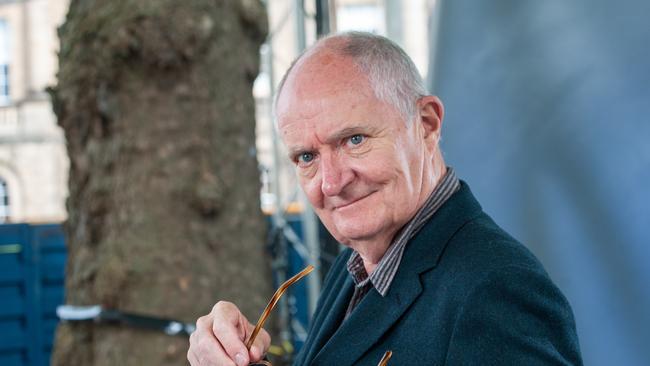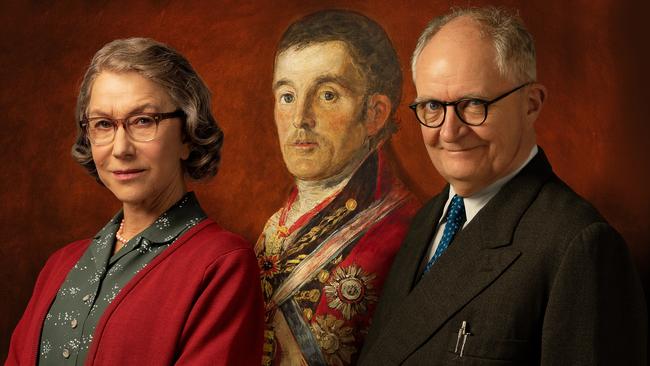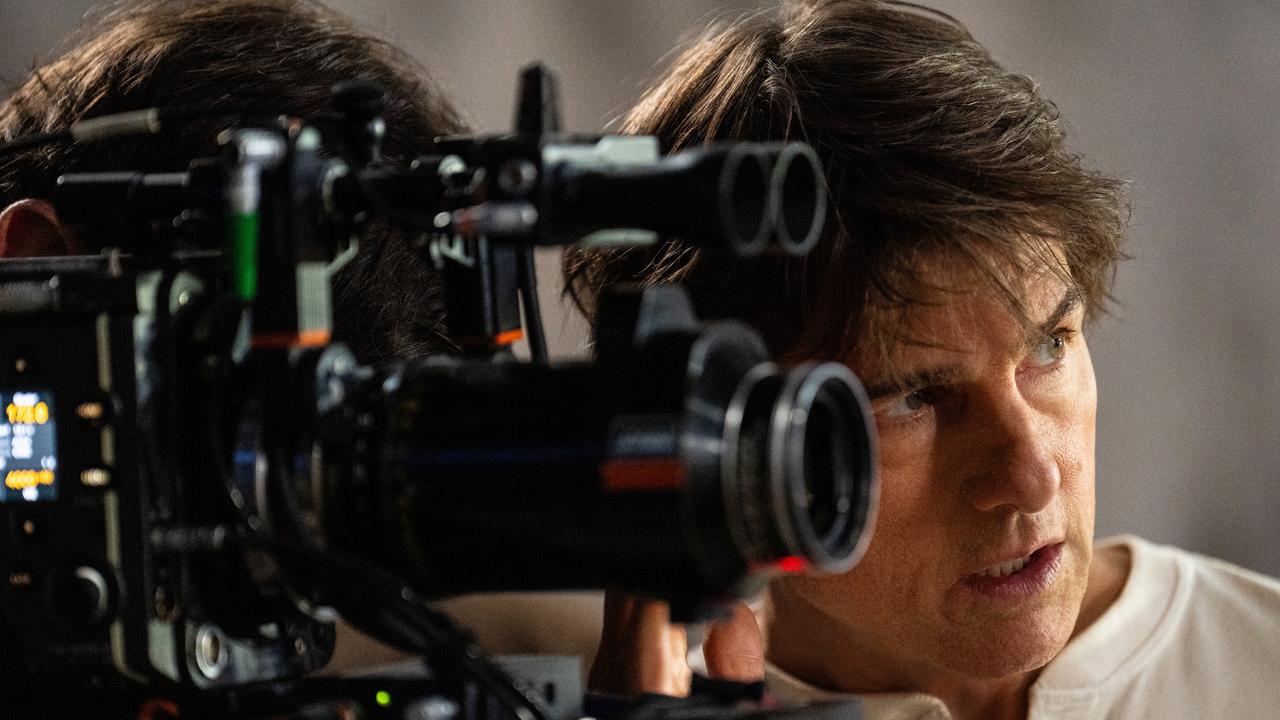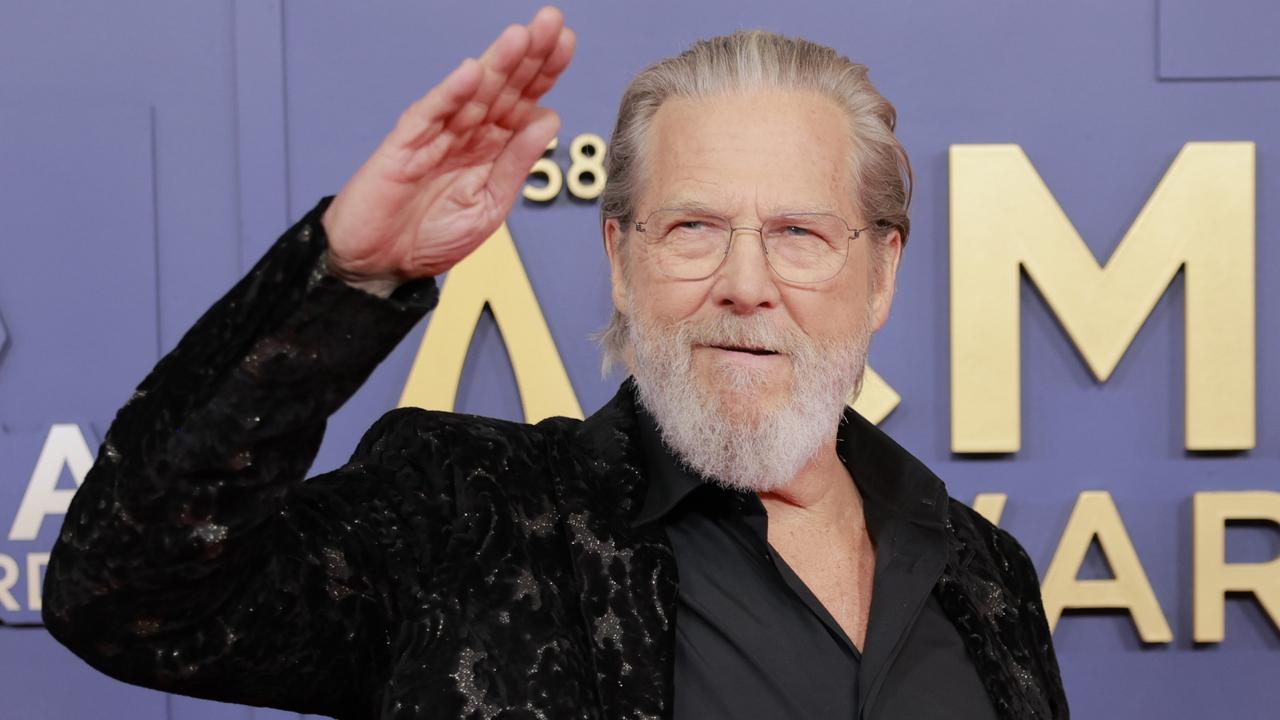Jim Broadbent: The leading man for the little man
Jim Broadbent revelled in playing a little-known UK anti-establishment cult figure in his latest movie.

As an actor who has worked in the movies of Roger Michell, Stephen Frears and Mike Leigh, as well as in the Bridget Jones, Harry Potter and Game of Thrones franchises, Jim Broadbent, 72, is a British national treasure. However, he is not one for fuss and even declined an OBE in 2002.
“I think actors should really be sort of anti-establishment. I think that's our job,” he says over Zoom from the UK.
Broadbent now delivers what could be the performance of his career in The Duke, where he plays jocular, real-life 60-year-old Kempton Bunton, a Newcastle-on-Tyne bus driver and aspiring playwright who took on the powers-that-be in order to make a point about the rights of the elderly and their inability to pay for BBC television licences. In 1961 Bunton purloined Goya’s portrait of the Duke of Wellington from the National Gallery in London – the only time a painting had been stolen from the institution – and when Broadbent defends Bunton’s actions in court at the end of the film, he has everyone in stitches with the public loudly declaring their approval. While the dialogue was largely taken from actual court transcripts, the scene is the kind of rousing moment Hollywood movies constantly aim for and often fail to deliver.
When The Duke premiered in Venice 2020 at the height of Covid, it was a huge hit. Director Roger Michell (Notting Hill) took to the podium with Broadbent for the film’s press conference, and they were very funny though also poignant regarding the film’s concerns.
By the time The Duke arrived in UK cinemas last month, Michell, 65, had passed away, in September, from a sudden heart attack. Broadbent, who is not keen on interviews, knew he had to take action in promoting the film, which he says is one of his best, alongside Leigh’s Topsy-Turvy, Richard Eyre’s Iris, for which he received the Best Supporting Actor Oscar, and Baz Luhrmann’s Moulin Rouge!.
“It was a joy to be in a musical, a big musical and a play a big character,” Broadbent recalls. “Baz has a strong vision and sticks to it.”
He had also greatly enjoyed appearing alongside Lindsay Duncan in Michell’s Le Week-End, a 2013 touching portrait of aged romance, and describes the loss of Michell as “the saddest thing in the world”.
“Everyone who worked with Roger in films or in the theatre wanted to work with him again. He was the loveliest, perfect director and created a wonderful atmosphere, he cast great talent and made strong artistic choices. He was very proud of The Duke and it is a privilege to be able to put the film out as a tribute to him. I want as many people as possible to see it and I think it is a wonderful piece of work.”

Was it easy to film the final scene where Bunton takes on the court? “It was a lot to learn, but it was easy. It’s Kempton finally getting on the pulpit. He longed to have a captive audience and I think he loved it, and I loved it too. It’s unusual to get that part in a film where you can behave like that. I remember at the end of the first run through the scene, the entire courtroom of usually bored and cynical extras rose as a man and applauded. That gave me a real sense of how wonderful that scene was and how wonderfully it would play in the cinema.”
Broadbent tries to bring a degree of humour to every role, even if the subject matter is bleak. “It’s the bedrock of what I do.”
He was immediately attracted to the humour in The Duke. “When I read the script it tickled me from the word go and I wondered to what extent Kempton was deliberately making jokes. I certainly loved his sense of humour, as portrayed by the screenwriters, Richard Bean and Clive Coleman.”
Bean and Coleman drew on the memoirs and newspaper articles Bunton had kept that have been maintained by his family.
Filmed in Bradford and Leeds, substituting for the more developed Newcastle, The Duke follows Bunton, here a taxi driver, as he campaigns on the street with his son, Jackie (Fionn Whitehead, from Dunkirk), and ends up unemployed after he stands up to the disrespect and racism of his bosses. In 1965, after unsuccessfully writing ransom letters to the government offering to return the painting in exchange for television fee exemptions for the elderly, Bunton walked into the National Gallery with the painting and confessed to the theft.
“It’s a story that isn’t very well known in England, even though at the time it was a notorious case,” Michell said in Venice. “It’s a strange, very eccentric English story and I think it’s partly its eccentricity which attracted me to it and partly the potential to work again with Jim.
“In a way, it’s a Robin Hood story and Robin Hood is referenced in the film in several ways. But this man isn’t Robin Hood, he is something of a rogue and a rascal. What’s great about him is that as in many pieces of English fiction, and particularly in English film, it’s a story about a small man. In this case, a working-class man, a disenfranchised, unemployed man from the north of England, who stands up and speaks truth to power.”
Broadbent could sympathise with Bunton’s actions. “Kempton’s a better man than I think I’ve ever been. He was a good role model in his way. He was passionate and followed it through, and he was brave and honourable. A flawed character, perhaps, but still a good man, as seen in our film anyway.”
In our 2019 interview for his previous film, Blackbird, Michell had told me how after working with Susan Sarandon he had been looking forward to collaborating for the first time with Helen Mirren on The Duke.
“I’m always attracted to strong women, why not?” However, the stylish British actor, a sex symbol in her youth and still stunning at 76, is almost unrecognisable as Benton’s frumpy long-suffering wife, Dorothy. Broadbent had never worked with Mirren, even if they appeared in different scenes in 2008’s Inkheart.
“Helen’s always been a glorious and glamorous actress and I’d admired her from afar,” Broadbent admits. “So it is wonderful to be up close and playing her husband in a very loving relationship. When I first saw her in her wig and costume, it was meant to make me laugh,” he chuckles, “but in the acting, she was as beautiful as ever. You see past the wig and the cardigan and you see an inner beauty shining through.”
For 35 years Broadbent has been married to painter and former theatre designer Anastasia Lewis, who has two grown sons from a previous relationship, while Broadbent has never had kids of his own. Raised in Lincolnshire, he was greatly influenced by his parents, both amateur actors.
He had drawn on the experience of his sculptor mother Doreen in his portrayal of John Bayley, Iris Murdoch’s husband, as he cared for his wife in Iris. “Probably why the performance worked was because, like Iris, my mother had Alzheimer’s and I knew about that,” Broadbent recalls. “So it was a very special role in that way.”
His father, Roy Broadbent, an artist, sculptor, interior designer and furniture maker, was an atheist, as is his son. Jim says he had no need to rebel in his youth.
“My father had been a conscientious objector in the war and we lived in an old vicarage. He was the rebel of his family. He came from an industrialist engineering family in Yorkshire and he left to go to arts school and become a designer and architect. Then the war came and he was a pacifist. There had been a degree of nonconformity in the family, so I didn’t have a great thing to rebel against. That work had been done in a way.”
Has Broadbent ever done anything criminal for the greater good, like Bunton, or even for his own good?
“I don’t think so. Just accidentally, bad behaviour as a young man, probably drinking too much, but not actually criminal. But that’s long gone. That was my teenage years. Behaving better latterly.”
In our earlier interview for Mike Leigh’s 2010 film, Another Year, Broadbent admitted he was “quite rebellious” at high school and was expelled for drinking. “What do they call it? Three strikes and you are out. I finally got caught. I was 18 and you are allowed to drink at 18 so it was ridiculous that I should have been expelled. My father wrote a strong letter to the headmaster, but they said that rules were rules.”
Did that experience lead him in a certain direction?
“It didn’t really make much difference in the end. I was never going to be academic, I was never going to go to university and I knew it was going to be arts school or theatre or something. When I got to drama school I did well … obviously at home with it and I had some very good tutors who were very supportive of me.”
He says he was greatly influenced by accomplished stage and film actor Michael Gough, who played butler Alfred Pennyworth in the first four Batman movies. “He was a family friend and he was always a great mentor and a lovely man. I remember him seeing me at drama school and he said that my career would take off when I was in my 30s, which he was exactly right about. At that time I didn’t really slot into the category of the handsome leading young man. What passes for casting is much broader now.”
Initially, Broadbent resisted working at the Royal Shakespeare Company and rather appeared in adventurous stage productions at the Royal Court, most notably Kafka’s Dick, by Alan Bennett, and he worked on stage with great theatre innovator Leigh before becoming a regular in his films including 1990’s Life Is Sweet.
Having grown up watching the comedy of Benny Hill and Dave King, he alternated the drama with comedy, appearing with Rowan Atkinson in Blackadder, in Terry Gilliam’s Time Bandits and Brazil and later in Edgar Wright’s Hot Fuzz, and he now plays “a fun role” as an agent in the upcoming Ten Percent, the UK version of Call My Agent!.
Always lacking in vanity, he has often played characters older than himself and hasn’t minded. He was mentor to Indiana Jones when Harrison Ford was seven years older in Indiana Jones and the Kingdom of the Crystal Skull, in the Bridget Jones films he was Bridget Jones’s dad when Colin Firth, who played Bridget’s suitor, Mark Darcy, was 11 years younger and he played Firth’s dad in And When Did You Last See My Father? “Colin is blessed with youthful good looks!” Broadbent muses of his good friend.
Meanwhile, his natural sense of authority came in handy when playing teacher Horace Slughorn in two Harry Potter films, as Archmaester Ebrose in Game of Thrones and as Professor Kirke in The Chronicles of Narnia: The Lion, The Witch and the Wardrobe, which was filmed in New Zealand. Though he can as easily play compliance, as he did in his role of Denis Thatcher alongside Meryl Streep in The Iron Lady.
A relaxed kind of actor, Broadbent famously does crosswords between takes, though admits he has to learn his lines more than when he was younger.
He worries that the world for actors, especially younger actors, is changing rapidly in the UK, especially with the government’s threat to dismantle the BBC, whose productions are an integral part of Australian programming.
“The BBC is still a wonderful employer of actors and I hope it wouldn’t get completely driven by commercial imperatives rather than doing things that they want to do. I think it is worrying and I think that, ironically, Kempton, who didn’t watch the BBC on principle, would have been fighting to save the BBC under current circumstances.”
The Duke releases in cinemas around the country from March 31.



To join the conversation, please log in. Don't have an account? Register
Join the conversation, you are commenting as Logout